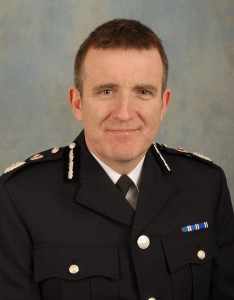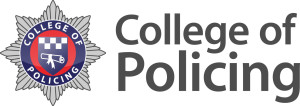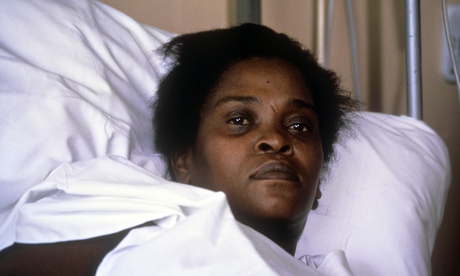 Storage facilities with most documents missing or misfiled, systems repeatedly described as ‘chaotic’ by the police themselves – internal documents reveal that the Met is having big problems sorting out its records management before it can even tell the Pitchford Inquiry what’s gone on.
Storage facilities with most documents missing or misfiled, systems repeatedly described as ‘chaotic’ by the police themselves – internal documents reveal that the Met is having big problems sorting out its records management before it can even tell the Pitchford Inquiry what’s gone on.
Guest blogger Peter Salmon of the Undercover Research Group unpicks recent statements from the force.
The issue of police disclosure and how public it can be is a matter taxing all involved in the Pitchford Inquiry. We know that behind the scenes there has been considerable discussion between the Inquiry team and the Metropolitan Police over how the Inquiry accesses the vast amount of police material.
Recently, the Inquiry website published two statements from Det Supt Neil Hutchison, responding to questions from the Inquiry team. With dozens of supporting documents, they shed some light on what has been happening within the Metropolitan Police. The first statement deals with conflicts of interest and the prevention of the destruction of relevant records. The second focuses on the state of the Met’s record keeping and what is being done about it through Operation FileSafe. In this post we look at the latter issue.
Inadequate record management
What jumps out is just how much embarrassment was caused at the Metropolitan Police Service (MPS) by Mark Ellison’s seismic 2014 report, the Stephen Lawrence Independent Review, in which he criticised the force’s inadequate record keeping.[1]
Ellison’s concern was that part of the difficulty in getting to the truth was the necessary records were not available. The force’s own internal follow-up reviews of record keeping used the word ‘chaotic’.[2] A supporting document states, remarkably, that the reviews had: identified wholesale dysfunctional, inconsistent handling of unregistered material across the MPS.[3]
Another document notes that of the material held in ‘deep storage’ on a site controlled by logistics contractors TNT, 54% of the records supposedly there were missing or misfiled.[4]
And all that before one gets to the actual material of concern. The importance of locating police records impacts not just on the inquiry into undercover policing, but on historical anti-corruption / child abuse cases, the related disclosure required by the Daniel Morgan Independent Panel and the Child Sexual Abuse Inquiry and any similar investigations in the future.
As a result, since late 2014 the Metropolitan Police Service has been doing a ‘clean sweep’ of all its buildings and systems, in what is known as Operation FileSafe, not expected to be complete until 2018.
FileSafe is an off-shoot of the catchy acronym AC-PIT (Assistant Commissioner – Public Inquiry Team), formerly known as Operation Beacon. Headed by Neil Hutchison, AC-PIT was set up to co-ordinate responses to the issues raised by the various public inquiries. It answers to the Assistant Commissioner for Professionalism, Martin Hewitt, and is a sister unit to the Directorate of Professional Standards (DPS) which provides most of the team for Operation Herne, the police’s own investigation into the spycop abuses, and which would oversee any future disciplinary cases if they were happen.
AC-PIT, working with the Directorate of Legal Services, is the Met’s point of contact for the Pitchford Inquiry and has responsibility for disclosure: it is they who will do the actual searches for material and redact it before passing it to the inquiry, via Legal Services.[5] Thus, its first job was to understand what the Met actually has – leading to the realisation that the records system needs cleaning up and sorting out if disclosure obligations are to be met. So, according to Hutchison, AC-PIT was split into two strands; the first dealing with Pitchford and Op FileSafe, the second with anti-corruption issues, such as the Daniel Morgan murder.[6]
Hutchison spends a lot his statement and its exhibits detailing how much effort is being put into FileSafe and the clean up of records across the Metropolitan Police. For example, they’ve identified ’83 different digital and paper based archives of potential relevance’.[5]
He also emphasises how much training and briefing is being given to relevant officers at all levels on retention of relevant documents. This focuses on Counter Terrorism Command (now in charge of the spycop units) and the Covert Intelligence Unit / SC&O35, but also encompasses every local police station.
Preventing destruction of documents
Following the publication of the Ellison Review in July 2014 there was a temporary halt on file disposal, which was lifted when new protocols were put in place in January 2015.[7][8]
These new protocols require that the heads of units give permission before any files relevant to issues covered by AC-PIT are destroyed. Where there is doubt, AC-PIT should be consulted directly. Hutchison mentions a number of examples of these requests being passed to him for final decision.
But what happened prior to January 2015? We learn that the when it comes to Counter Terrorism Command (SO15) which now has responsibility for the legacy of the spycop units, that he asked whether any relevant documents may have been destroyed. He talked directly to two of heads of SO15, Duncan Ball and Dean Haydon, but interestingly failed to ask Richard Walton, in charge for a key bit of this period and who retired from the police following criticism of his role the saga.
For Hutchison, it is sufficient that an unnamed Head of Compliance and Assurance through whom such requests would have supposedly been routed, has said nothing relevant had been destroyed while Walton was in his post.[9] All in all, we are reliant on the word of the commanding officers as given to Hutchison only.
Likewise, Hutchison provides us with a considerable amount of material on the standards officers are expected to adhere to, but given that it’s misconduct in office which is at the heart of this and other inquiries, this rings loud and hollow. If we could blithely trust the probity of Metropolitan Police officers there would be no need for a public inquiry in the first place. No other organisation would allow people who committed serious abuses to be custodians of the evidence against them.
If there is one concern he has met, it is that they are aware of conflicts of interest. To that end they have taken appropriate steps and ensured that no member of AC-PIT has been an undercover or served in the Special Demonstration Squad / National Public Order Intelligence Unit. They are, however, a bit more woolly on whether AC-PIT members have been involved in the management of undercovers.
Disclosure Still Isn’t Happening
So where does this leave us on the all-important issue of the Inquiry getting actual access to the material? Hutchison’s statement provides useful insight on a number of issues.
For a start, there still does not appear to be a formally agreed protocol for the Metropolitan Police to release documents to the Inquiry. Draft versions have gone back and forth between the MPS and the inquiry, which have yet to be circulated for comment to the ‘non-police/state core particpants’ (NPSCPs) – the people admitted to the inquiry because they were significantly targeted by spycops.
This is of considerable concern, not just in terms of time scale, but because the process is not being facilitated by input from the NPSCPs, a key stakeholder in the inquiry, who needless to say have issues with what they have seen so far.
At The Monitoring Group / Centre for Crime and Justice Studies conference in April 2016 attended by many NPSCPs, representatives of the inquiry pointed out that the MPS and the undercover policing Inquiry (UCPI) were still negotiating various obstacles. In particular, the access that the UCPI team themselves would have in order to conduct searches or supervise them.
It remains a very serious concern that there is not oversight to ensure the MPS is delivering all relevant material, and that vast tranches of important material remain in the control of the police rather than being turned over to the Inquiry.
It is also a concern that decisions to restrict evidence may be agreed only between Pitchford and the police, with NPSCPs having to apply retrospectively to have them lifted. This is seen by NPSCPs, and the wider public,as damaging to the transparency of the inquiry. While a lot of effort is going in to meet the needs of the police, there is a growing feeling that the victims in all this are being excluded from important decision-making processes that affect them.
Against Their Nature
Hutchison makes an interesting admission about the way this is challenging to the police instinct for defensiveness and secrecy when he writes:
‘The UCPI should be aware that the extent of disclosure of sensitive material required by AC-PIT is unprecedented and liaison is required to ensure staff comply with disclosure demands which run contrary to their training and previous experience’.[12]
This is reinforced by an alarming note, buried in exhibit D754[10] – an internal briefing on the public inquiry and record keeping by Counter Terrorism Command (which has taken over responsibility for the old spycop units) – that the head of Operation Herne, Mick Creedon, is critical of CTC’s lack of compliance with Metropolitan Police policy on review, retention and destruction of records. The implications of Creedon’s criticism do not appear to be addressed anywhere by Hutchison, implying he seems to think everything is fine. Interestingly, the briefing was signed off by one Richard Walton.
Earlier this year that a police whistle-blower came forward to let leading Green Party politician Jenny Jones know that her files were being wrongfully destroyed. The allegations say a number of officers shredded files they knew should have been retained but whose existence would embarrass the MPS. Hutchison only gives a short paragraph dealing with this concern, raised by the UPCI with him in a separate request. Half the paragraph is redacted; the gist of the rest is that, if substantiated, it will lead to charges. We are not even told if it is subject to an ongoing investigation by AC-PIT.
Hutchison only presented directly to senior managers in the spycop unit (now called National Domestic Extremist and Disorder Intelligence Unity) to brief them on FileSafe on 13 May 2015,[11] yet the whistle-blower came forward six months later, when all the new preservation protocols were supposed to be firmly in place. It does not appear therefore that the NDEDIU is taking this seriously or that AC-PIT is adequately overseeing things.
If that is the case, the Inquiry is failing at its first challenge. If it is prevented from getting the facts about what police have done, it cannot investigate.
=====
Part two to this article, focusing on other points of interest to those following the inquiry closely and a brief timeline shall appear on the Undercover Research Group blog.
References
- Ellie Pyemont & Penny Coombe, MPS Progress in the field of Information Management since the publication of the Stephen Lawrence Independent Review (exhibit D759), Public Inquiry Team, Metropolitan Police Service, 13 July 2015.
- Penny Coombe & Ellie Pyemont, Operation FileSafe – Information Management: briefing for the Information Assurance and Security Board (exhibit D758), Metropolitan Police Service, 15 July 2015 (accessed 20 July 2016).
- Penny Coombe & Ellie Pyemont, An overview of activities undertaken as part of Operation FileSafe between July 2014 and March 2015, hightlight key milestone and future risks (exhibit D786), Public Inquiry Team, Metropolitan Police Service, 6 March 2015 (accessed 20 July 2016).
- Penny Coombe & Ellie Pyemont, Operation FileSafe – Options Paper regarding MPS unregistered archives – Version 8 (exhibit D788), Public Inquiry Team, Metropolitan Police, 2 March 2015 (accessed 20 July 2016).
- Neil Hutchison, Briefing to Management Board on Public Inquiry into undercover policing (exhibit D748), Public Inquiry Team, Metropolitan Police Service, 10 July 2016 (accessed 20 July 2016).
- Neil Hutchison, Witness Statement on Rule 9-12 (PARTIALLY REDACTED) to Undercover Policing Inquiry, Metropolitan Police Service, 17 June 2016.
- Jeremy Burton, FileSafe Update (exhibit D777), email of 10 September 2014, Public Inquiry Team, Metropolitan Police Service (accessed 20 July 2016).
- Following the paper trail (exhibit D780), Metropolitan Police Service (intranet article), 26 January 2015.
- Neil Hutchison, Witness Statement on Rule 9-10(a) to Undercover Policing Inquiry, Metropolitan Police Service, 6 June 2016.
- Counter Terrorism Command, Management of Information within SO15 version 1.0 (exhibit D754), Metropolitan Police Service, 11 June 2015.
- Neil Hutchison, Briefing note re Records Management (exhibit D767), Public Inquiry Team, Metropolitan Police, 30 June 2014.
- Neil Hutchison, Witness Statement on Rule 9-12 (PARTIALLY REDACTED) to Undercover Policing Inquiry (paragraph 46), Metropolitan Police Service, 17 June 2016.


 Storage facilities with most documents missing or misfiled, systems repeatedly described as ‘chaotic’ by the police themselves – internal documents reveal that the Met is having big problems sorting out its records management before it can even tell the Pitchford Inquiry what’s gone on.
Storage facilities with most documents missing or misfiled, systems repeatedly described as ‘chaotic’ by the police themselves – internal documents reveal that the Met is having big problems sorting out its records management before it can even tell the Pitchford Inquiry what’s gone on. 
